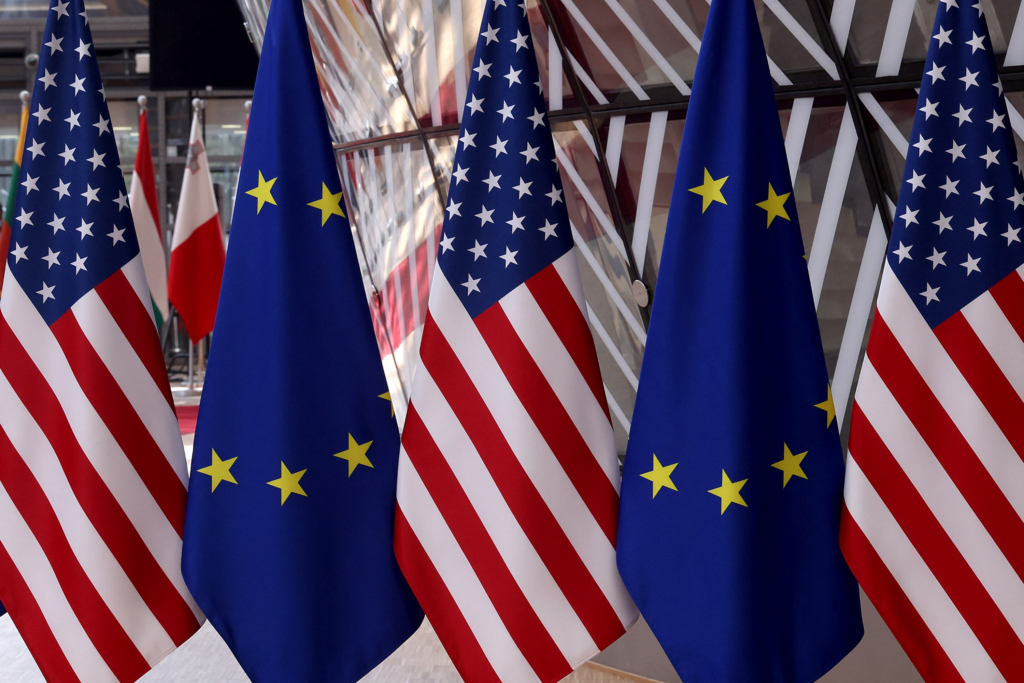Exclusion From the Trusted White List
The United States recently restricted exports of advanced AI chips to several Eastern European nations, causing significant concern. Lithuania, Poland, Estonia, and Latvia were notably excluded from the “trusted white list” of 18 countries. This list grants unrestricted access to U.S.-made AI chips. Instead, these nations face limits on the total computing power they can import unless they meet specific security requirements.
Finland, in contrast, remains on the trusted list, highlighting a strategic distinction in U.S. foreign policy. This decision has raised questions about U.S. priorities and its evaluation of European allies.

Reactions Across the Region
Discontent Among the Baltics
Lithuania, Estonia, and Latvia, collectively known as the Baltic states, expressed their dissatisfaction. These nations have been staunch supporters of U.S. policies, particularly against Russia and China. Their exclusion from unrestricted access to advanced AI technology seems at odds with their strategic alignment with the U.S.
Officials in these countries fear the restrictions may hinder their AI development and national security plans. AI is rapidly becoming a cornerstone of modern defense strategies, making this decision particularly impactful.
Poland’s Concerns
Poland, another key U.S. ally in the region, has also voiced concerns. The country had ambitious plans to lead AI innovation in Europe. While immediate projects may remain unaffected, Poland’s Digital Affairs Minister warned of potential long-term challenges. These restrictions could slow the pace of innovation and complicate efforts to attract tech investments.
Economic and Strategic Implications
Stalling Technological Progress
The restrictions could stifle technological advancement in the affected nations. Without access to cutting-edge AI chips, their ability to compete in the global AI landscape diminishes. This is particularly troubling for countries striving to enhance their digital economies and cybersecurity capabilities.
Mixed Geopolitical Messaging
The U.S. decision sends mixed signals to its Eastern European allies. These countries have been vocal supporters of U.S. initiatives against Russia, often taking significant political and economic risks. Exclusion from the trusted white list might be interpreted as a lack of appreciation for their unwavering support. It raises questions about how the U.S. values its alliances in this strategically vital region.
U.S. Policy Intent
The U.S. aims to maintain its technological edge in AI while preventing advanced technologies from reaching adversaries like China or Russia. This strategy reflects a broader view of AI as critical to national security, not just commercial interests.
The policy underscores the delicate balance between safeguarding technology and maintaining strong alliances. By limiting access, the U.S. seeks to prevent indirect pathways for its technologies to end up in hostile hands. However, this approach also risks alienating some of its closest allies.
EU Reactions and Possible Responses
Discord Within the EU
The restrictions have exposed divisions within the European Union. Some officials argue that the U.S. policy creates a two-tier system among EU nations. This division could lead to tension within the bloc, as countries on the trusted list enjoy competitive advantages over their neighbors.

Calls for Unified Action
There are growing calls within the EU for a unified stance on technology export policies. By negotiating collectively with the U.S., the EU could advocate for fairer access to critical technologies. Such efforts could also strengthen the EU’s position in the global tech landscape.
The Broader Context
The interplay between technology, geopolitics, and international alliances is becoming increasingly complex. Economic benefits, security concerns, and political alliances do not always align. For the U.S., this policy reflects a calculated strategy to prioritize national security over political convenience. For Eastern European nations, it underscores the challenges of balancing loyalty to the U.S. with their own economic and technological aspirations.
The exclusion of key Eastern European nations from unrestricted AI chip access highlights the shifting dynamics of global alliances. These nations must now navigate a challenging landscape, balancing their strategic alignment with the U.S. against the need to foster independent technological growth. For the U.S., maintaining strong alliances while protecting its technological edge will require careful diplomacy and nuanced policymaking.
The debate over AI export restrictions is far from over. It represents a pivotal moment in the 21st century, where technology, geopolitics, and national security intersect in unprecedented ways.
Our Visitor






 Users Today : 66
Users Today : 66


